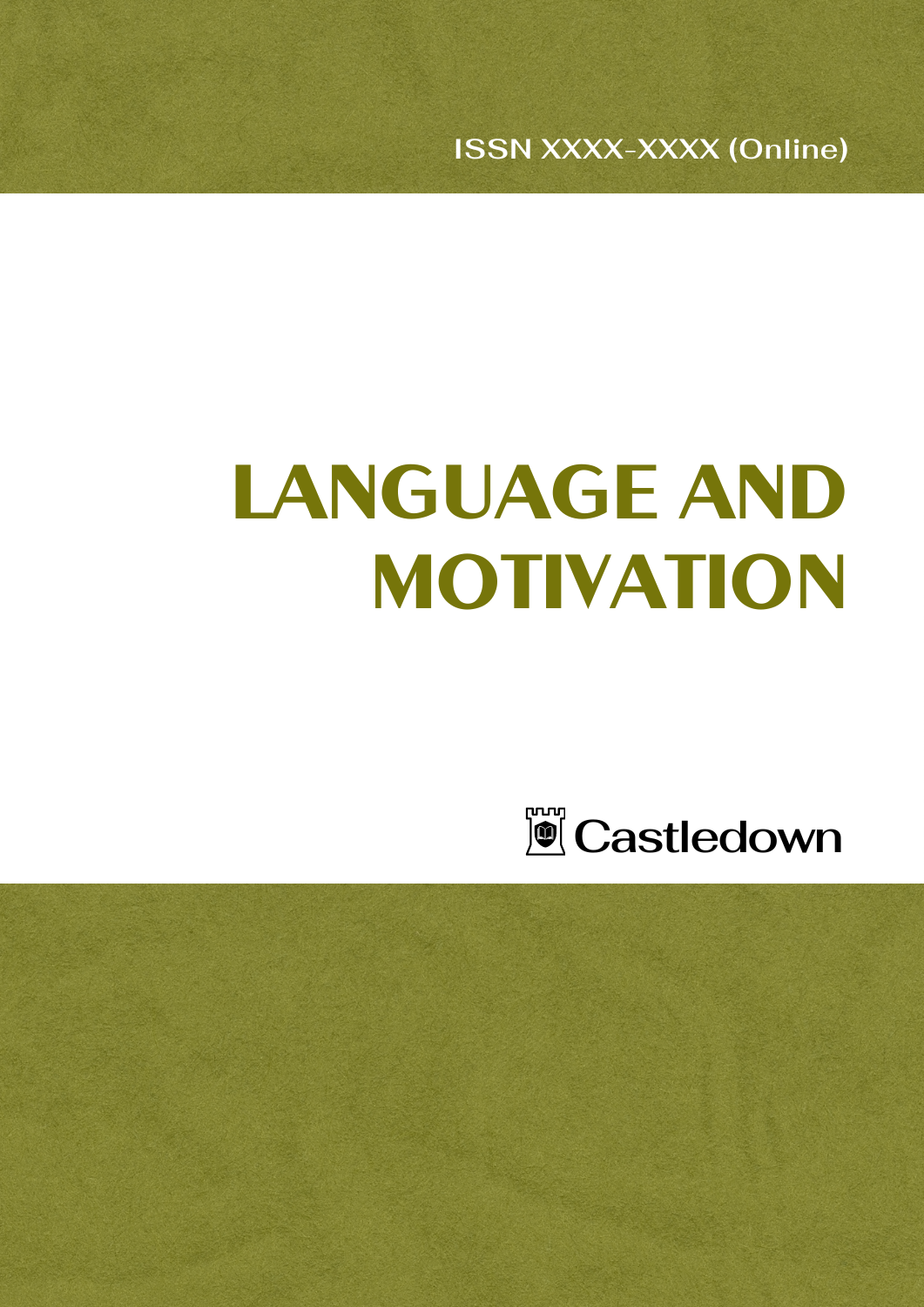Overview
Editor-in-Chief: Jozef Colpaert
First Published: 2024
Frequency: Continuous Online Publication
ISSN: TBA
![]()
![]()
Aims & Scope
Language and Motivation is an intercontinental and transdisciplinary journal that publishes significant contributions to the study of psychological-motivational aspects in and approaches to language learning, teaching and testing. It aims to integrate recent motivation theories into language pedagogy, to develop new findings on language motivation and to contribute to high-quality language education worldwide.
Motivation theory has evolved from traditional intrinsic-extrinsic dichotomies, Maslow’s Hierarchy of Needs and Herzberg’s Two-factor Theory to more complex and fine-tuned models such as the Self-Determination Continuum (Deci & Ryan). Theories and models such as ARCS (Keller), Expectancy-Value Theory (Wigfield & Eccles), Self-Efficacy Theory (Bandura), Goal Setting Theory (Locke & Latham), Attribution Theory (Weiner) and Appreciative Inquiry Technique (Cooperrider) now offer researchers a wider array of approaches to motivation.
More and more research projects, books and conferences focus on the topic of language and motivation, with Gardner’s socio-educational model and Dörnyei’ L2 Motivational Self System as prominent examples. This journal intends to respond to a growing demand for relevant findings on the subject and for publication possibilities by inviting established scholars worldwide to contribute as author or reviewer.
We welcome submissions on all aspects related to language learning, teaching and testing (as assessment in the broadest sense), primarily L2 acquisition (FLA or SLA) on primary, secondary or tertiary level, in commercial courses or in more incidental settings ‘in the wild’, but also mother tongue acquisition and literacy.
Submissions can be based on:
- linguistics (e.g. sociolinguistics, psycholinguistics, computational linguistics, pragmatics, LSP or Language for Specific Purposes, minority and endangered languages ...),
- pedagogy (e.g. teacher education and training, instructional design, CLIL or Content and Language Integrated Learning, TBLT or Task-based Language Teaching, bilingual education, critical education, learner agency, ...),
- communication (e.g. intercultural communication, translanguaging ...),
- technology (e.g. artificial intelligence, smart systems, ambient intelligence, Open Data ...), or
- psychology (e.g. motivation, engagement, identification, self-regulation, emotions, anxiety, technology acceptance, academic optimism, language disorders, verbal giftedness, ...),
but they should preferably be geared towards developing transdisciplinary concepts and methods. Transdisciplinarity aims to develop boundary-transcending terminology (such as the term ‘affordance’), models, concepts, objects, methods, metaphors and even frameworks on a higher level of abstraction than the discipline level, in order to foster communication between the disciplines involved.
Language and Motivation advocates an ecological and multimodal approach to language learning, teaching and testing. An ecological approach means that we preferably look at the motivational effect of the learning environment and context as a whole, as an ecology. In a multimodal approach, the learning process is multidimensional. It is not unidimensional, but it is mapped out around various axes such as remote/face-to-face, synchronous/asynchronous, individual/collaborative, the four skills, strategies and media.
This journal embraces quantitative, qualitative and mixed-method empirical and experimental research methods, but also systematic reviews of literature (desk research or meta-analyses), (auto-)ethnographic research, reports on design or engineering projects, replication studies, book reviews or evaluations of educational technology.
Publication Details
This is an open access journal.
All articles are freely available immediately on publication.
There are no fees to submit to this journal, but article processing charges are required once a manuscript has been accepted for publication. These fees are available here.
Publisher Information
Ground Level, 470 St Kilda Road
Melbourne VIC 3004 Australia
Email: journals@castledown.com
Peer Review Process
Language and Motivation uses a double-blind peer review process where manuscripts that are sent out for review (i.e., those that pass through the initial check for length, quality, and relevance by the Editor-in-Chief) will be sent to at least two reviewers who will provide their feedback to the Editor-in-Chief in a timely manner, preferably within three weeks. In the case of a split decision, additional reviewers will be assigned to the manuscript to ensure a fair review process. Please note that this may delay the final outcome of the review. For special issues, the guest editor(s) of the issue will assign reviewers and recommend an outcome to the Editor-in-Chief, who makes the final decision about whether to accept the manuscript.
Latest Articles

